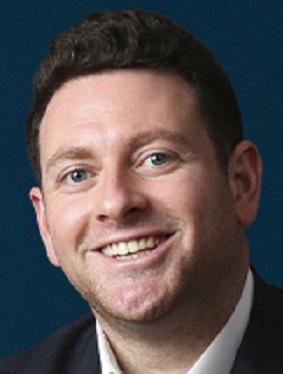Guest Commentary
Adam Sieff | Contributed
Assembly Bill 2408 proposes to punish popular social media platforms for editorial content promotion decisions. But it violates fundamental rights and must not become law.
If California passed a law exposing major newspaper publishers to liability for the selection, arrangement and promotion of articles they print, it would obviously violate the First Amendment. So why are some state lawmakers advancing Assembly Bill 2408 , which proposes precisely the same type of unconstitutional penalties for major internet publishers?
The bill is well-intended, and aims to promote the mental and emotional well-being of young people on the internet. But to achieve these worthy ends, AB 2408 proposes to punish popular social media platforms when their editorial content promotion decisions can be shown to “cause” young audiences to suffer injuries.
That proposal violates core speech rights, and legislators must not allow it to become law in its current form.
The U.S. Supreme Court has made it clear that the First Amendment protects publishers’ decisions to select, arrange and promote content to audiences as a basic exercise of their editorial control and judgment. The protection applies regardless of the medium of communication publishers use to convey information, whether they run a newspaper, cable network, website or social network. And the court has expressly held that the amendment applies to online speech and content moderation practices.
Critically, the rule prevents California, or any state, from enacting a law that would penalize an internet publisher for exercising its judgment about what kinds of content to publish and promote to its audience, just as it prevents California from enacting a law punishing a newspaper for its decisions about what to print on the front page.
It makes no legal difference that social media platforms often create algorithms to apply their editorial judgments. An algorithm is just a set of pre-programmed editorial rules that reflects value judgments made by real people about the kind of content to display and promote.
To punish a platform’s algorithmic promotion of popular content is, as a constitutional matter, no different than punishing CalMatters for recommending stories to particular users based on their browsing and reading history. Nor, ultimately, is it any different from punishing a tabloid magazine for publishing prurient content on its front page.
The fact that AB 2408 endeavors to protect young audiences is also, from a legal perspective, irrelevant. The First Amendment prohibits the imposition of legal penalties that restrict the ideas to which certain audiences may be exposed, and the general exercise of editorial discretion cannot be suppressed solely to protect young people from content or ideas that a government censor considers unsuitable.
While one cannot deny that these are difficult times to be a young person, and few policies are more important than those that advance the health and prospects of future generations, AB 2408 is the wrong remedy. Permitting California to punish social media platforms’ editorial decisions, as the measure proposes, would equally permit governments to punish newspapers and magazines, as well as authors of “choose-your-own-adventure” stories, video games and, arguably, any kind of literature if a plaintiff could establish injuries suffered from those authors’ editorial choices — a prospect the Supreme Court rejected in 2011, the last time California attempted to restrict the publication of content to young audiences (in that instance, video games).

There are better ways to achieve AB 2408’s goals that are consistent with the First Amendment values that define our open society. Earlier concerns over new forms of unsettling but constitutionally protected media, including comic books, movies, rock music, cable programming and video games, offer instruction.
After courts rejected attempts like AB 2408 to punish the publishers of these different types of content, governments, publishers, schools and civil society groups came together to develop rating systems, parental controls and public information campaigns to allow families to make informed choices about their media consumption.
The constitutionally required solution to concerns over new forms of speech, in other words, is more speech, not less. California’s lawmakers should embrace that approach and reject AB 2408, at least as written today.
• DISCLAIMER: The opinions, beliefs and viewpoints expressed by the various author’s articles on this Opinion piece or elsewhere online or in the newspaper where we have articles with the header “COLUMN/EDITORIAL & OPINION” do not necessarily reflect the opinions, beliefs and viewpoints or official policies of the Publisher, Editor, Reporters or anybody else in the Staff of the Hemet and San Jacinto Chronicle Newspaper.
Find your latest news here at the Hemet & San Jacinto Chronicle


























